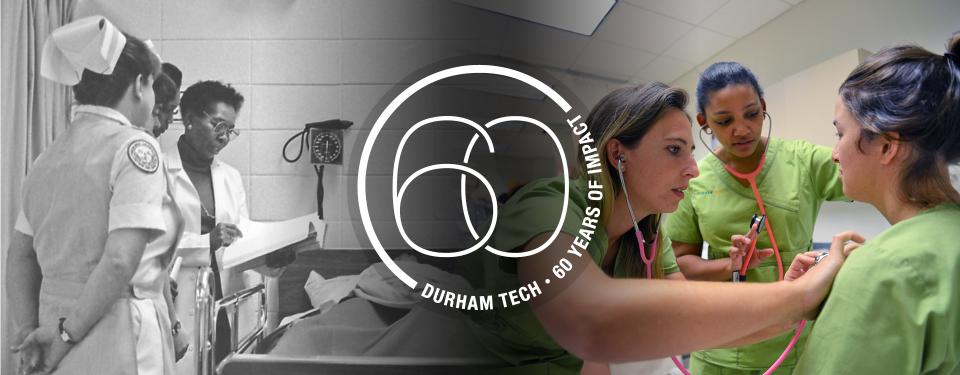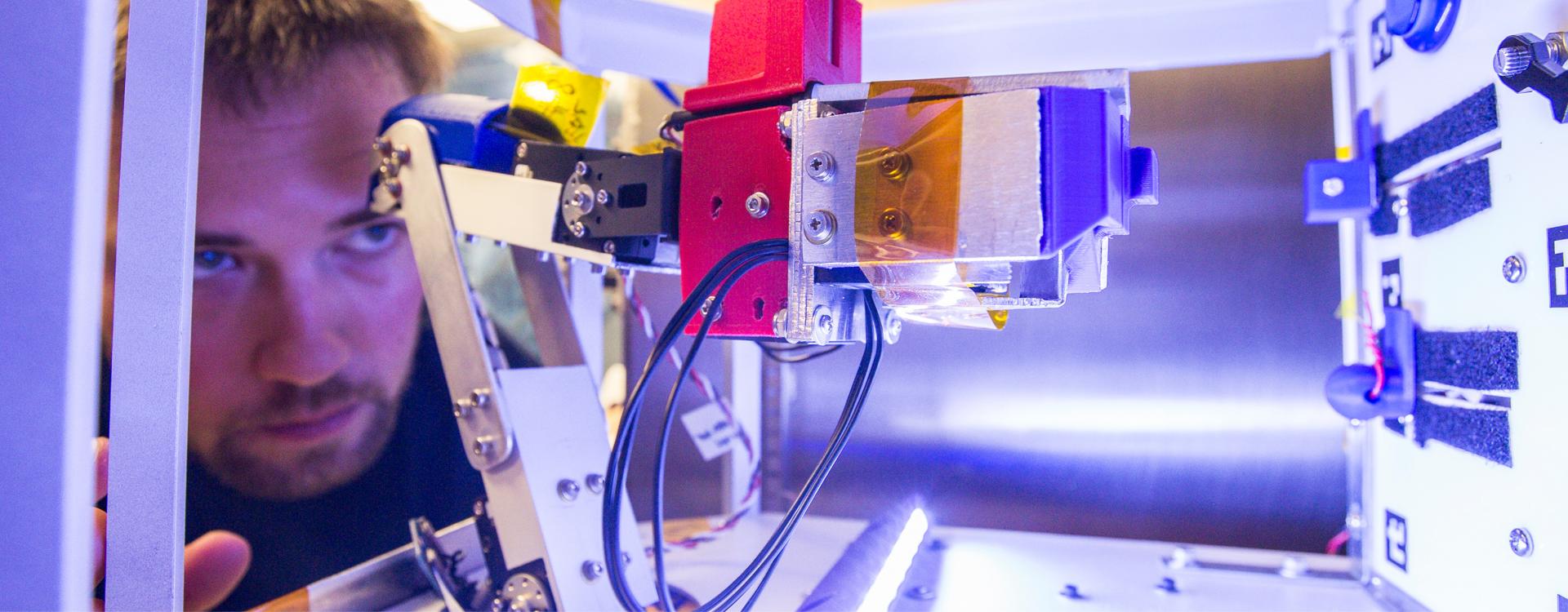60 for 60: The creation of one of Durham Tech’s most popular programs
In celebration of Durham Technical Community College’s 60th anniversary, the College is publishing 60 for 60 – a storytelling campaign that highlights the people, places, and events that have progressed and shaped the College’s six decades of impact. To view more 60 for 60 stories, visit www.durhamtech.edu/60for60.

By some accounts, Durham Technical Community College was built from a handful of practical nursing courses stowed away in hallways and hospitals throughout Durham, dating as far back as June 1948.
Oftentimes, these were nighttime courses held at Duke Hospital or Durham and Hillside high schools and were tailored for women looking to get into healthcare.
Nursing classes were a trend across the state and region as the demand ramped up for post-secondary education and skill-based training.
Two years after the opening of Durham Tech, practical nursing was transferred from the North Carolina Department of Public Instruction to the then-Department of Community Colleges.
In 1963, the practical nursing program became one of the first vocational education programs at the then Durham Industrial Education Center and one of the oldest practical nursing programs in North Carolina. The program has trained thousands of nurses since its inception and has seen the addition of the Associate Degree in Nursing as well as university transfer pathways over time.
Practical nursing was a one-year program to prepare students to care for patients of all ages with a variety of illnesses. Durham Tech’s first graduating class of practical nursing students graduated in 1964.
In the 1970s until 1985, there was a significant need of practical nurses in the Triangle area. Durham Tech operated on a three-month term system at that time and assisted in decreasing the nursing shortages by admitting approximately 40 students each quarter, which resulted in the College teaching about 120-130 students each year to fill the need.
Practical nursing directors included Beatrice Tyson, Adelle Butts, Louise Beard, Dr. Georgia Jones, Leona Crockett, Dr. Louise Gooche, Sherry Wilson, Cindy Hardin, and at present, Sheryl McCloud.
Dr. Louise Gooche worked at the College for 31 years as an instructor and Practical Nursing Director for 15 years. She began under President Harold Collins and retired in 2000. Dr. Gooche led what she noted was one of the largest practical nursing programs in North Carolina at that time.
In a conversation, Gooche shared President Collins’ pride in the program, her time at Durham Tech, how she continues to see her graduates all over the United States when she travels, and advice for students pursing nursing.
“You have chosen a career that someone’s life is dependent upon your performance. As a student be alert, concerned, and you must love what you are doing. Keep in mind you are not in it for the money, you can make money in other professions. You are there because this is something that you want to do and care to do. Give it the best you can do and don’t give up,” said Gooche.
Today, Durham Tech’s practical nursing program continues to be a popular course. The College receives over 125 applicants each year but can only take 60 students due to the State Board of Nursing requirements. Although the program does not continue the waitlist opportunity like it has in the past, students now have to reapply if they are not one of the 60 students selected.
“We were the second in the state to become nationally accredited in October 2014, we are one of the ranking poll of community colleges as #9 in the state and we have consistently had an NCLEX exam pass rate of 97-100 percent for over 15 years,” said Sheryl McCloud, Director of Practical Nursing.
The practical nursing program’s clinical partnerships have also grown to provide students with more opportunities for clinical practice.
“The only constant in life is change and because of that this program has changed, grown, and developed because of the changes in healthcare and will continue to strive for change because of the demand in the community,” said McCloud.
In 1986, the Associate Degree Nursing program began with a class of eight licensed practical nurses beginning during the fourth quarter and five of them graduated in May of 1987.
Associate Degree Nursing was a seven-quarter program that provided physical and mental health training.
Associate Degree Nursing directors included Diana Bond, Margaret Skulnik, Dr. Helen Ayres, Dr. Mark Hand, and at present, Johnnie Bratton.
Dr. Mark Hand, former Director of Associate Degree Nursing, said he enjoyed working with such a diverse group of students.
“The most valuable experience for me was working with students from many different backgrounds and seeing the achievements that these students attained while in the ADN program. Many of the students are non-traditional, have families, and work full or part-time along while attending school. Seeing the success of these students is why I teach nursing. The faculty are also very dedicated to student learning and student success,” said Hand.
Bratton stated the Associate Degree Nursing program accepts two cohorts each year-- the Associate Degree and Licensed Practical Nurse to Associate Degree.
Learn more about Durham Tech's Practical Nursing or Associate Degree Nursing programs.
For more information, contact Desiree Towson, M.S., Communications and Public Relations Coordinator, at allisontowsond@durhamtech.edu.

